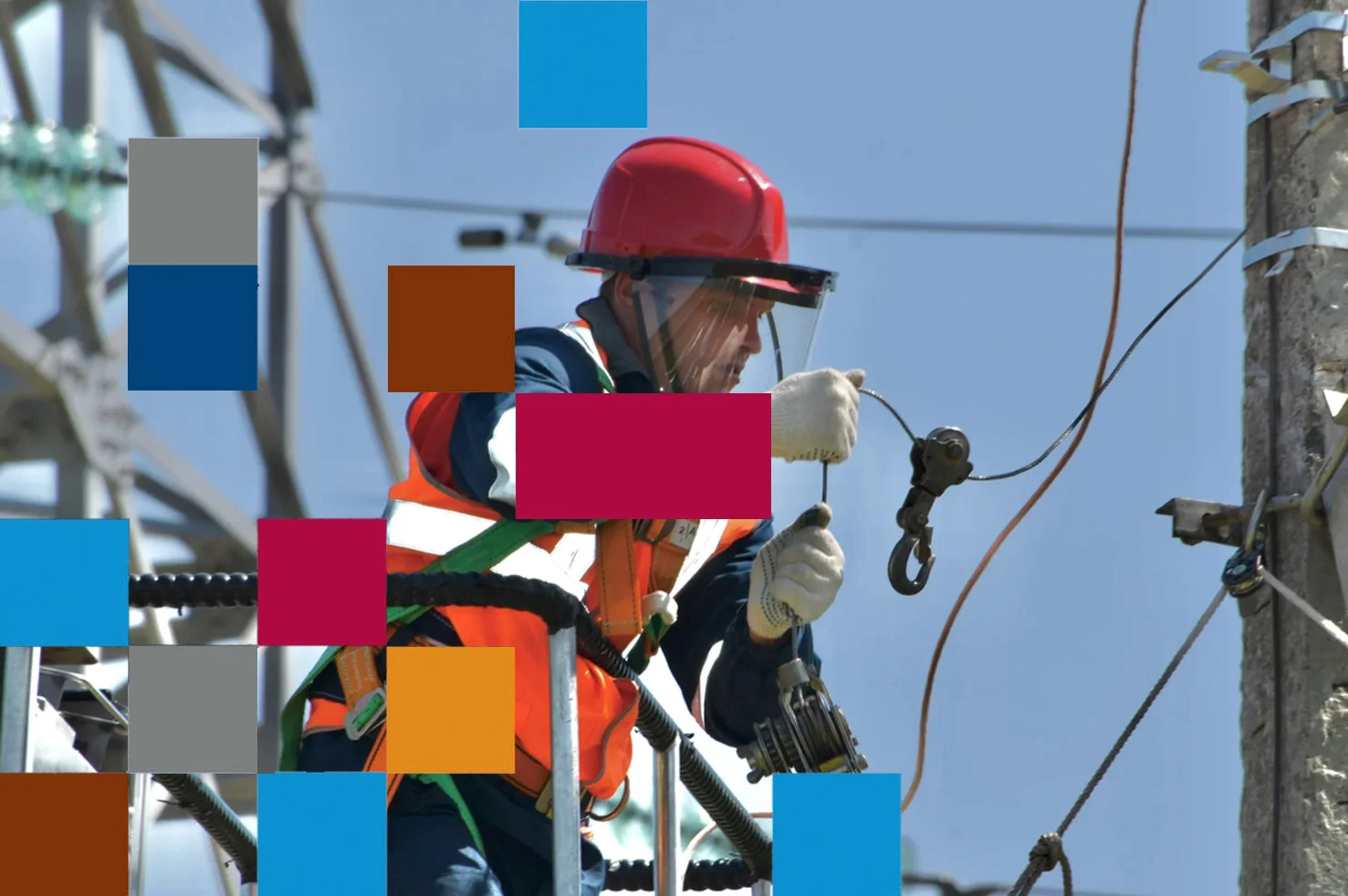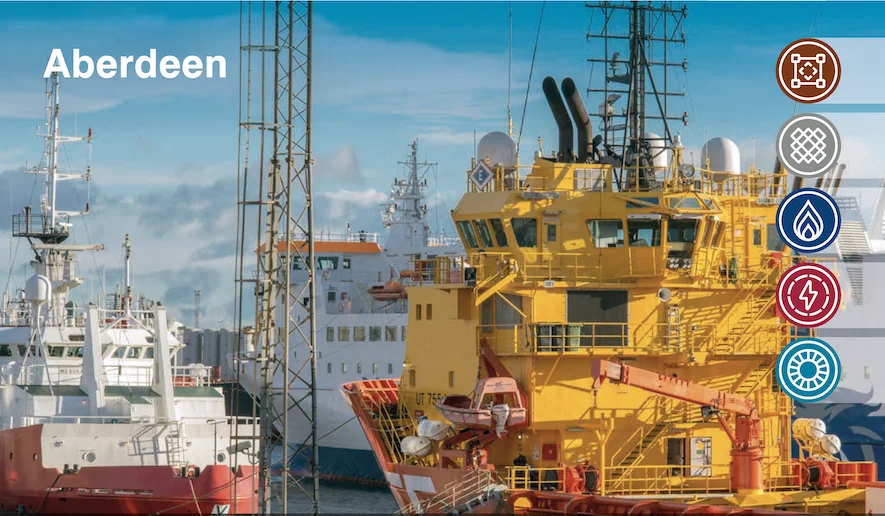
The Rise of Sustainable Aviation Fuel and the Potential Recruitment Boom
10 Jun, 20255 mins
Like many renewable energy sources that are heralded as the saviour of the energy transition, they come with certain challenges before they can be adopted more broadly. Offshore wind has challenges with costs and return of long-term investments, while hydrogen requires a massive infrastructure reinvestment. Sustainable Aviation Fuel (SAF) is a renewable resource that is a bit different from the others as its niche product market for a single sector – it’s an alternative fuel made from non-petroleum feedstocks that reduces emissions from air transportation. So, how will SAF revolutionise aviation travel sustainably, what are the challenges, and what are the jobs prospects within the industry?
Aviation accounts for 2.5% of global CO₂ emissions, but it has contributed around 4% to global warming to date [1], and 12% of all CO2 emissions from transportation in general. With the advent of SAF, there is a hope of achieving net-zero as set out by the international aviation industry for 2050. What makes this achievable is the benefits SAF can potentially bring in making the industry more sustainable:
- Engine and infrastructure compatibility
SAF blended with conventional jet fuel can be used in existing aircraft and infrastructure. That means no additional costs of retrofitting engines or equipment.
- Fewer emissions
Compared with conventional jet fuel, 100% of SAF has the potential to reduce greenhouse gas emissions by up to 94% depending on feedstock and technology pathways.
- More flexibility
If SAF is to a replacement for conventional jet fuel, it will allow for multiple products from various feedstocks and production technologies, so benefits can be extended.
Challenges to Overcome
In order to become part of the aviation norm, there are several key obstacles that SAF will have to overcome in order to become part of the mainstream. The first of these is scalability, where current production is insufficient, accounting for less than 1% of global jet fuel consumption. To meet future demands, it would require a massive scale-up in production. Cost and policy are the next significant challenge, as SAF is currently more expensive to produce than conventional fuel. This puts off investors, necessitating financial incentives and supportive policies to encourage adoption. Then there is the complexity of the supply chain - ensuring a steady supply of feedstocks and managing logistics and infrastructure across multiple industries will need to be addressed to ensure a steady supply to meet future demands.
Orion Group’s SAF expert, Rob Wilson, concurs with points above, though it doesn’t distract from the potential SAF has on the aviation industry. He says, ‘While the industry presents incredible opportunities, it also faces challenges, including regulatory pressures, high production costs, feedstock supply constraints, and policy gaps.’
Is SAF Growth Taking Off?
Since 2018, there has been a significant rise in SAF investment, with, according to the Energy Industries Council (EIC), over 170 tracked SAF projects, totaling an estimated $121 billion [2]. Leading the way is the US, who is backed by tax incentives and government funding supporting SAF-related research, development, and application, further stimulating production and demand.
Outside of the US, UK, and Canada, SAF adoption is largely still in its infancy. Part of this is due to a limited lack of awareness among many countries, and the absence of relevant regulations. But there are signs that SAF is being taken seriously with an increasing amount of interest in the Middle East and APAC regions.
Roles within the SAF Industry
If the projected number of active projects continue to rise and they receive positive Final Investment Decisions (FID), then this will open the doors to a variety of roles within the SAF industry to support the growth. These roles will include:
Process Engineers
Process Engineers optimise engineering processes across the value chain, overseeing design, development, and implementation. They ensure compliance with regulatory requirements and industry standards while coordinating with multidisciplinary teams to enhance efficiency, safety, and sustainability in operations.
Business Development Manager
Experienced SAF development managers are required to help the business grow further as a new sustainable option and a business looking to expand. They should be able to identify clients in the SAF sector and build, nurture, and maintain healthy relationships through strategic planning and sustainability initiatives. They should also lead and coordinate the preparation of proposals for technical assignments related to SAF projects, such as due diligence and technical advisory services.
Sustainable Aviation Manager
SAF managers have never been more critical in implementing and managing sustainable aviation fuel and carbon optimisation strategies. This highly responsible and challenging role covers many areas, such as always ensuring compliance with industry standards and regulations, leading and collaborating with cross-functional teams as they implement solutions to reduce the company's carbon footprint, and working closely with suppliers and partners to secure reliable and cost-effective sources of sustainable aviation fuel.
Data Scientist
The role of a data scientist in SAF is a mix of science and technology. Using various data modelling techniques, such as machine learning and data analysis, they are applied during the conversion process of sustainable fuel to identify trends and patterns, predict future outcomes, and optimise existing processes to make the fuel more efficient and, therefore, more sustainable.
These roles, and many more besides, will transfer from fossil fuel and energy sectors primarily, with many engineering, scientific and managerial positions possessing the skills and experience to take into the SAF sector.
Rob says that while still in its infancy, the SAF industry is showing roots of growth, with engineering and technical roles in particular being asked for. He goes on to say that, ‘The Sustainable Aviation Fuel industry is an exciting and rapidly evolving market. We’ve been fortunate to work with leading SAF producers, placing key talent on major projects across Europe and the U.S.’.
Summary
The SAF industry is poised to revolutionise air travel by significantly reducing carbon emissions and promoting cleaner air. Despite the challenges the industry faces such as high production costs, limited supply, and regulatory hurdles, the sector is expected to create numerous job opportunities across various fields. By 2030, SAF production could generate 10,350 jobs in the UK alone, potentially increasing to 60,000 jobs by 2050 [3]. These positions will span multiple sectors, including feedstock production, fuel systems engineering, data science, and sustainable aviation management. Rob concludes that the future looks bright for SAF, ‘With growing investment, regulatory support, and technological advancements, SAF is set to play a pivotal role in decarbonising aviation. We’re proud to support our clients by providing top technical and commercial talent for critical projects worldwide’.
References:


